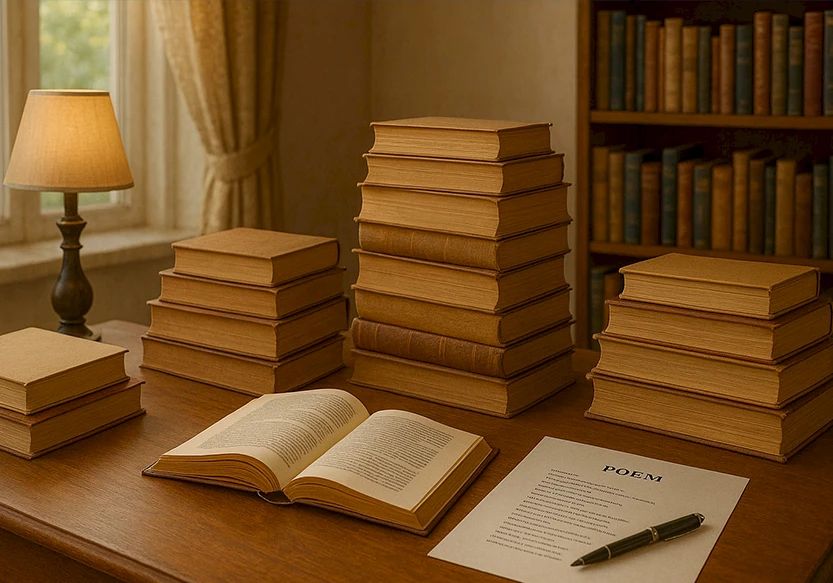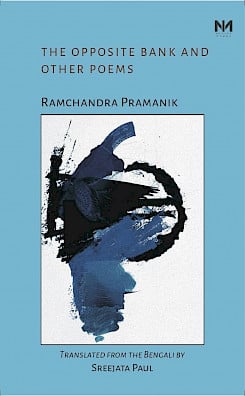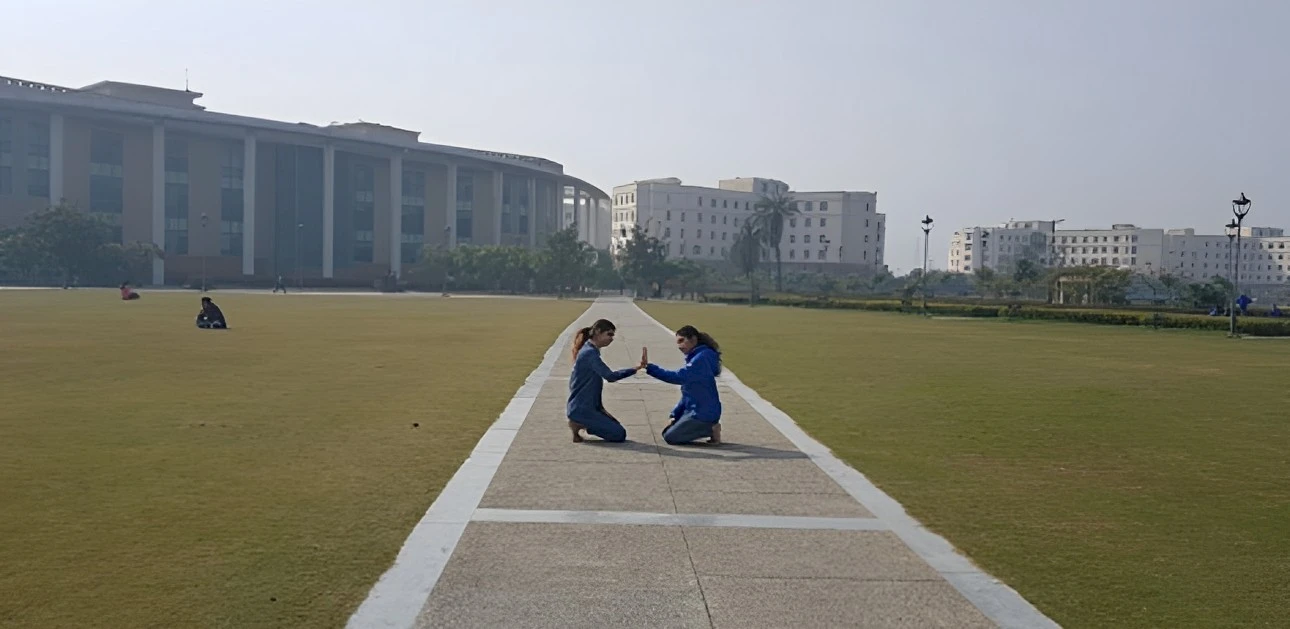Translation in Praxis

Editorial / September 19, 2025
Two of the past five winners of the International Booker Prize, including this year’s, have been books by Indian authors in English translation: Banu Mushtaq’s Kannada short story collection translated by Deepa Bhasthi as Heart Lamp and Geetanjali Shree’s Hindi novel translated by Daisy Rockwell as Tomb of Sand. Such heartening news attests to the fact that there is an emerging market for contemporary Indian literature in translation. Poetry, however, features far less than literary fiction in this market.
Recognising Indian poetry’s potential to enthuse a global audience, The Antonym Collections (a publishing house dedicated entirely to translated literature) launched a poetry translation residency in August 2023.

Focusing on four lesser-known Bengali poets who they believed deserve a wider audience for their oeuvre, Antonym released a call for translators, to which Dr. Sreejata Paul, Assistant Professor of English at Shiv Nadar University, Delhi-NCR, applied. Winning the Indrani Mukherjee Memorial Scholarship and being paired with the poet Ramchandra Pramanik, Dr. Paul then embarked on a two-year journey to translate a book-length volume of selections from his poetry published between the 1970s and the 2020s. The said volume, titled The Opposite Bank and Other Poems, was finally released on 4th September 2025.
At the launch event in the Shiv Nadar University campus, Dr. Paul explained how “in music theory, a harmony stacks notes above and below the root note to add texture and depth to the melody. Translation works in much the same way.. I hope that I’ve been able to conjure other aural contexts and lifeworlds for [Pramanik’s] poems to circulate in.” She also spoke about the challenges of translating the work of a living author and those of translating poetry, especially in terms of rendering internal rhymes, run-on lines and culturally specific onomatopoeia.
Translation has, in different ways, been crucial to Dr. Paul’s literary critical scholarship since her doctoral research. Her Ph.D. dissertation, for instance, centralised the work of Muslim women writers from colonial Bengal, which she unearthed from archives in Kolkata, Dhaka and London and then went on to digitise, as well as translate. The slow and rigorous process of translation allowed her to examine the influence of Perso-Arabic vocabulary and literary forms on these women’s writing.
In her more recent research on the intersections between gender and non-human beings, Dr. Paul explores how the humanities and social sciences can provide translational paradigms to foster understanding, mutual respect, and collaborative meaning-making across species lines.
Dr Paul’s research and writing largely revolve around women’s intellectual networks, Islam in South Asia, and environmental and plant humanities. She has been translating literary and critical work from Bengali into English from 2017 onwards and is currently thinking through what words one leaves untranslated and the role of gender in translation.
More Blogs

The Hawthornden Literary Retreat bestowed on Dr Sambudha Sen to complete the manuscript of a novel
Professor Sambudha Sen, Head of the Department of English at Shiv Nadar Institution of Eminence, Delhi-NCR, was awarded a residency at the...

The Power of the Moving Body
Movement is an innate bodily action that humans have been exhibiting for the longest time. Long before language was invented, the body was the...

How Does A Multi-Disciplinary Approach To Education Enhance Learning And Prepare Students For A Multi-Faceted World?
In today’s world, where businesses are changing almost every day, it is the responsibility of educational institutes to provide holistic...